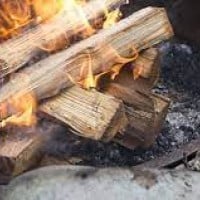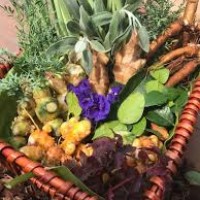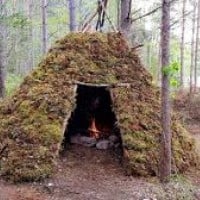Top 10 Most Needed Wilderness Survival Skills
There is a big difference between getting lost and found again vs surviving in the wilderness. Getting found is often a matter of becoming visible thru fire and smoke, bright colors, signal mirrors, and yelling. Surviving is an altogether different set of skills and priorities involving food, water, shelter, and safety.Surviving in the wilderness might be a matter of a few hours, overnight, days, or indefinitely. Regardless of the length of time you plan to be out there, factors such as hunger, thirst, animals/insects, and inclement weather might play into your ability to survive.
The order of skills you need will depend on the climate, your supplies, and intentions, but the basics are pretty much still the same.

Springs, rain water, condensation, your own urine, there are many sources of hydration in the wilderness. Digging below ground often produces hidden springs or mud puddles you can use. Don't forget about cleaning whatever water you find though.
Following up with that I said, there's also a Bad gateway error, is it possible it will fix or no?
If you're stranded somewhere, and you can't find drinking water, you're screwed.

There are a few ways to make some fire, use a lighter or light up a match. Whatever you use charcoal or some cotton wrap, you can cover it up with some black wood. Used to cook some meat.
Maybe you have a fire starting kit, or a lighter... Maybe all you have are some damp logs and a shoelace. Whatever your supplies happen to be, understanding the basics of fire building are a must. Cooking food, purifying water, warmth, and protection depend on it.

Some plants are medicine and some are poison - knowing the difference can mean the difference between a full belly and death. Try looking around your own neighborhood for plants that are edible (such as common dandelions or other edible greens/berries). Try to have at least a few options in mind whenever you venture out.

Even the most militant of vegans will end up tasting some fish or squirrel when the hunger gets bad enough; there are no atheists in foxholes... Maybe you can trap some small game, net catch some fish, or take a rifle shot at some big game. Knowing how to track, stalk, and capture animals can keep you alive.

Our ancestors lived in caves. They graduated up to shelters made by their own hands (first those that could be transported, later skyscrapers where we live like sardines). Making a basic lean-to, hut, or sleeping igloo can mean protection from animals and the elements as well as a good night's sleep.
It's very important to have a shelter to live in.

Whether it be a sprained ankle, a bee sting, or a snakebite, knowing how to wrap a body part for support or otherwise get help can mean an inconvenient night's sleep, or becoming worm food. Making bandages out of vines and splints from branches isn't only for reality T.V. shows.

Going from stalking your prey to being stalked can happen in an instant. Likewise, learning how to step over a downed log can mean catching a snake for dinner, vs dying in agony from a snake bite. Learn what danger signs exist for the wildlife in your area so you don't become a part of some other animal's foodchain.

Being able to swim comes in handy when you have to cross a river. Likewise, knowing some basic climbing techniques can make a box canyon an adventure rather than a trap. You can avoid injuries easier if you know which rocks to step on when descending a steep slope and how to use the natural landscape to pull yourself up a steep hillside. Exploring your own landscape and knowing your body's limitations and strengths can mean having fun and moving fast or chopping off your own arm to escape a rockfall.

Modern clothing is built for fashion over function which means it will eventually wear out. Making a trip to your local REI or LL Bean doesn't mean your new ripstop pants won't disintegrate the first time you walk thru some scrub oak. Animal hides, clothing patches, duct tape... All these things can be used to make new, or repair existing clothing.
